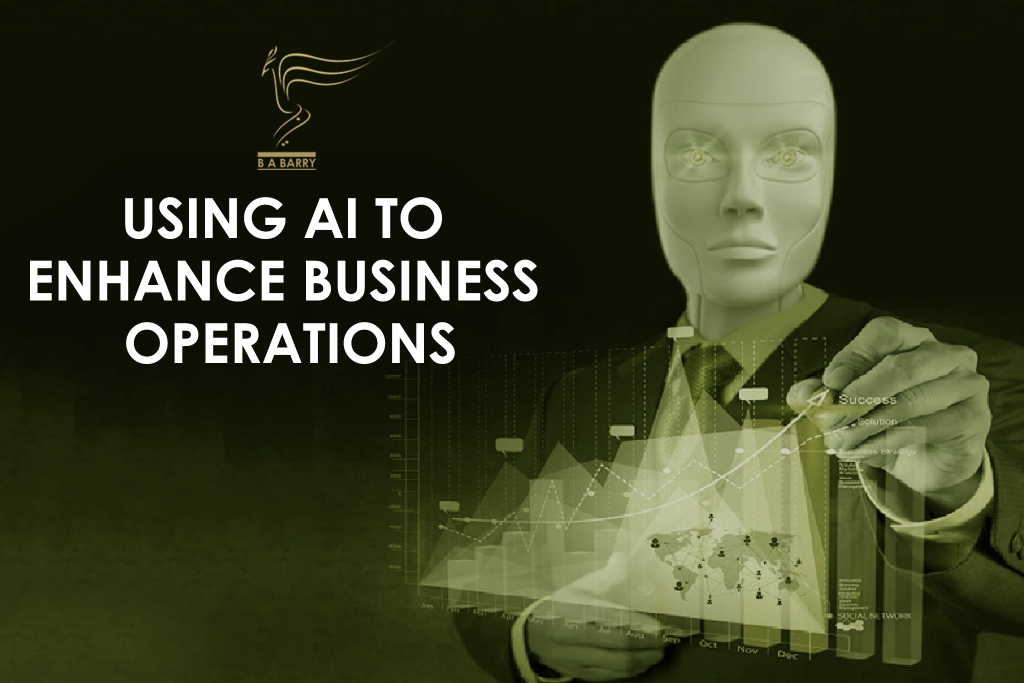- Tokyo : 11:11 |
- Singapore : 10:11 |
- Dubai : 06:11 |
- London : 02:11 |
- New York : 21:11 |
- Sydney : 13:11

Artificial intelligence (AI) has the potential to transform enterprises in a variety of ways. AI has a wide range of applications, from automating jobs and optimizing operations to enabling data-driven decision making and improving consumer experiences. However, it is critical to approach AI adoption responsibly, taking into account ethical concerns and potential biases. Businesses may use AI to alter their operations and prosper in the quickly changing digital landscape if they have the correct approach.
We’ll be discussing how artificial intelligence (AI) can help businesses in several ways. We'll also discuss some of the challenges associated with AI adoption and offer some tips for overcoming them. AI is already being used by businesses of all sizes in a variety of industries, and its use is only going to increase in the years to come. If you're thinking about incorporating AI into your business, this blog is for you.
AI can have a major impact on the way businesses operate. AI is an incredibly powerful tool that can be used to automate tasks, drive decisions based on data, and optimize operations. AI can help automate daily operations, such as customer service, marketing, and more.
AI can be used to quickly analyze large amounts of data and provide insights that would otherwise take massive amounts of data analysis. AI can also provide personalized customer experiences and automated sales processes.
Using AI in business can have a wide range of benefits.AI can assist organizations in lowering costs and increasing efficiency. AI can also be used to automate mundane and repetitive tasks, freeing up time for employees to focus on more valuable tasks. Help businesses make better decisions and drive innovation.
Here is what you need to know:
Automation and Efficiency: Artificial intelligence may automate repetitive operations and streamline processes, lowering the time and effort necessary to complete them. Employees may now focus on more complex and strategic duties, resulting in increased productivity and output.
Data Analysis and Insights: AI can swiftly and accurately analyse vast amounts of data, extracting useful insights and patterns. Businesses can use this to make data-driven decisions, recognise market trends, comprehend client behavior, and optimize operations.
Improved Consumer Experience: AI-powered chatbots and virtual assistants may enable personalized consumer interactions in real-time, answering questions and resolving difficulties. This improves the whole consumer experience, customer satisfaction, and brand loyalty.
Improved Marketing and Sales: It can aid in the analysis of customer preferences, purchasing patterns, and market trends. Businesses may adapt marketing efforts, provide personalized recommendations, and target the right audience with the correct message, resulting in higher conversion rates and revenues.
Risk Management: By analyzing historical data, recognizing patterns, and discovering anomalies, AI can assist in identifying and mitigating potential hazards. This is especially useful in fraud detection, cybersecurity, and compliance, as it reduces financial losses and protects business assets.
Product Development and Innovation: AI can help organization's uncover new product opportunities, forecast market demand, and improve product design. Businesses can innovate faster, generate better products, and remain ahead of the competition by embracing AI technologies.
Cost Savings: Artificial intelligence (AI) can assist optimize operations, eliminate errors, and reduce waste, resulting in significant cost savings. Businesses can remove human labor, cut overhead expenses, and improve operational efficiency by automating processes.
The adoption of AI technologies can create a competitive advantage in the market. Businesses that effectively use AI may beat their competition by providing better consumer experiences, making more informed decisions, and staying ahead of industry trends.
While AI provides significant benefits, businesses must also be conscious of ethical implications, data protection, and potential biases in AI systems. AI must be implemented responsibly and thoughtfully in order to maximize its positive influence. Through AI we can improve user experience and engagement.
It can be daunting to get started with AI as a business, but with the right strategy, you can begin to reap the benefits quickly. The first step is to determine how to best use AI for your business. The most important consideration is the type of data you plan to use. Do you have structured or unstructured data?
Structured data is primarily numerical data, such as sales numbers, customer data, and financial records.
Unstructured data is more complex, such as social media posts, emails, and customer reviews.
Once you have determined your data, you can decide which AI algorithms to use. Some of the most commonly used algorithms are deep learning networks, natural language processing (NLP), and computer vision.
Finally, you need to decide on the right AI platform for your business. Platforms such as Azure, Amazon Web Services, IBM Watson, and Google Cloud Platform offer a range of services and tools that can help you get started quickly. By understanding your data, selecting the right algorithms, and selecting the right AI platform, you can begin the process of using AI to enhance business operations.
The potential of AI to transform and improve business operations is significant. To harness the power of AI, it's important to select the right data, algorithms, and platform. And it's vital to be aware of the ethical and legal implications, as AI can have a wide-reaching impact.
By leveraging data, leveraging algorithms, and leveraging the right platform, you can start to reap the rewards of AI. From improved customer service to faster decision-making and innovative products, AI has the potential to revolutionize your business.
AI is no longer a future technology, it's becoming more pervasive, and many organizations are taking advantage of it. Businesses can use AI to enhance their operations, compete effectively, and stay ahead of their competitors. With the right AI strategy in place, organizations can succeed in the digitally transformed world.